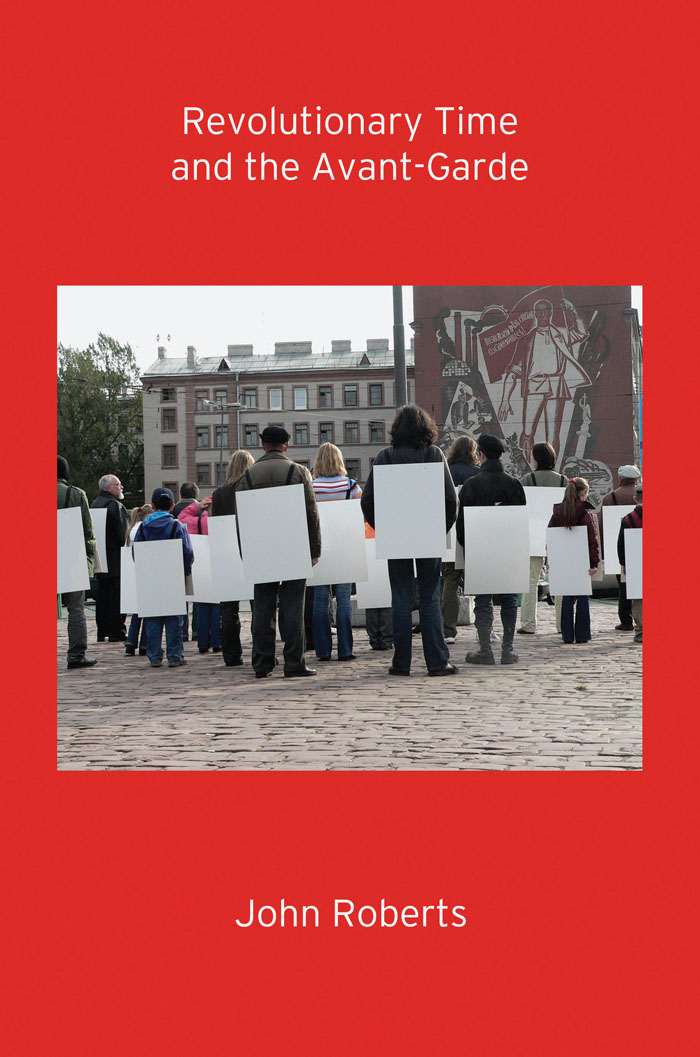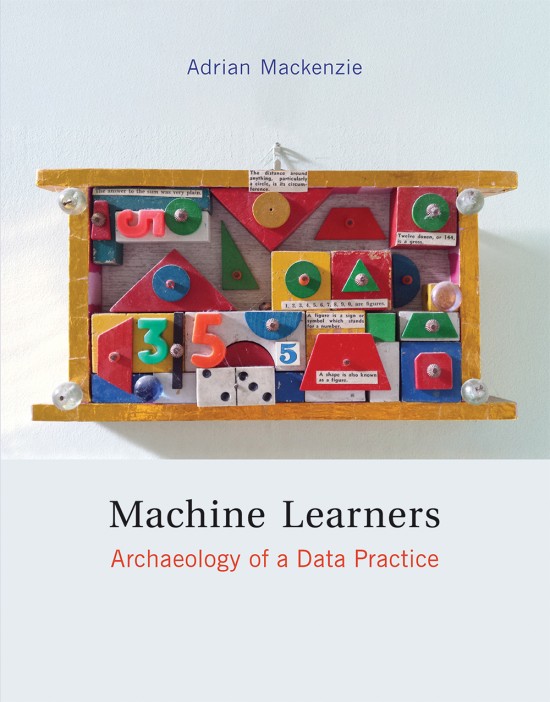John Roberts: Revolutionary Time and the Avant-Garde (2015)
Filed under book | Tags: · aesthetics, art, art history, autonomy, avant-garde, capitalism, conceptual art, immaterial labor, labour, modernism, negation, neo-avant-garde, philosophy, politics, praxis, theory

“Why the avant-garde of art needs to be rehabilitated today
Since the decidedly bleak beginning of the twenty-first century, art practice has become increasingly politicized. Yet few have put forward a sustained defence of this development. Revolutionary Time and the Avant-Garde is the first book to look at the legacy of the avant-garde in relation to the deepening crisis of contemporary capitalism.
An invigorating revitalization of the Frankfurt School legacy, Roberts’s book defines and validates the avant-garde idea with an erudite acuity, providing a refined conceptual set of tools to engage critically with the most advanced art theorists of our day, such as Hal Foster, Andrew Benjamin, Alain Badiou, Jacques Rancière, Paolo Virno, Claire Bishop, Michael Hardt, and Toni Negri.”
Publisher Verso, London, 2015
ISBN 9781781689134, 178168913X
xii+322 pages
Reviews: Noni Brynjolson (Field, 2015), Danica Radoshevich (Red Wedge, 2015), Kim Charnley (Platypus Review, 2016), Geoffrey Wildanger (LA Review of Books, 2016).
Comment (0)Megan Driscoll: Art on the Internet and the Digital Public Sphere, 1994-2003 (2018)
Filed under book | Tags: · art history, internet, internet art, net art, networks, public sphere, web
“This dissertation narrates the development of internet art, a diverse set of practices united by their interrogation of the technological, social, and/or political bases of computer networks. Covering the period from 1994, when internet art coalesced around the rise of the World Wide Web, to 2003, when both internet art and internet culture writ large began to respond to the rise of social media and web 2.0 technologies, the dissertation homes in on specific net art projects that variously engaged or challenged this period’s most persistent claim: that the internet is a new, digital public sphere. By studying how these artworks critiqued this claim, the dissertation uncovers three major models through which net art has asserted the publicness of computer networks—as an interpersonal network that connects or unites strangers into groups; as a virtual space akin to physical spaces of public gathering, discourse, and visibility; and as a unique platform for public speech, a new mass media potentially accessible to all.
Claims for the public status of computer networks rest on their ability to circulate information and facilitate discussion and debate. This definition of publicness is rooted in the concept of the classical public sphere as theorized by J�rgen Habermas. The dissertation thus reviews Habermas’s model of the classical public sphere, and its most significant critiques, in order to interrogate the terms of a digital public sphere. The dissertation also engages Michael Warner’s work on the formation of publics, counterpublics, and the mass-cultural public sphere; Oskar Negt and Alexander Kluge’s analysis of shared experience as the foundation of the formation of public spheres and the role of mass media in this process; Henri Lefebvre’s articulation of the social production of space; and Gilles Deleuze and Alexander Galloway’s respective analyses of the role of network logics in systems of control.
As a whole, the dissertation provides an historical account and critical analysis of internet art that encompasses not only its technological evolution but also its confrontation with the claims of publicness upon which our understanding of computer networks, and the art made on and about them, are founded.”
PhD Dissertation
Publisher University of California, Los Angeles, 2018
349 pages
via Cornelia
Adrian Mackenzie: Machine Learners: Archaeology of a Data Practice (2017)
Filed under book | Tags: · abstraction, algorithm, archaeology, artificial intelligence, code, data, diagram, error, information science, information theory, knowledge, machine learning, mathematics, neural networks, programming, theory

“If machine learning transforms the nature of knowledge, does it also transform the practice of critical thought?
Machine learning—programming computers to learn from data—has spread across scientific disciplines, media, entertainment, and government. Medical research, autonomous vehicles, credit transaction processing, computer gaming, recommendation systems, finance, surveillance, and robotics use machine learning. Machine learning devices (sometimes understood as scientific models, sometimes as operational algorithms) anchor the field of data science. They have also become mundane mechanisms deeply embedded in a variety of systems and gadgets. In contexts from the everyday to the esoteric, machine learning is said to transform the nature of knowledge. In this book, Adrian Mackenzie investigates whether machine learning also transforms the practice of critical thinking.
Mackenzie focuses on machine learners—either humans and machines or human-machine relations—situated among settings, data, and devices. The settings range from fMRI to Facebook; the data anything from cat images to DNA sequences; the devices include neural networks, support vector machines, and decision trees. He examines specific learning algorithms—writing code and writing about code—and develops an archaeology of operations that, following Foucault, views machine learning as a form of knowledge production and a strategy of power. Exploring layers of abstraction, data infrastructures, coding practices, diagrams, mathematical formalisms, and the social organization of machine learning, Mackenzie traces the mostly invisible architecture of one of the central zones of contemporary technological cultures.
Mackenzie’s account of machine learning locates places in which a sense of agency can take root. His archaeology of the operational formation of machine learning does not unearth the footprint of a strategic monolith but reveals the local tributaries of force that feed into the generalization and plurality of the field.”
Publisher MIT Press, November 2017
ISBN 9780262036825, 0262036827
272 pages
via A.B.
Review: Graham White (Computational Culture, 2021)
PDF (removed on 2018-8-20 upon request from publisher)
Draft and code samples on GIT

